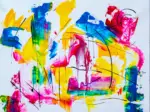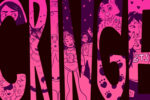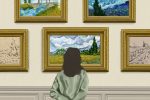Creativity is the tendency to generate ideas or possibilities that may be useful for solving problems, communicating with people and entertaining oneself or others. Right off the bat, these traits may sound a lot like those of an analytical person, who is also often described as a problem-solver and good communicator. However, the two personalities are quite different. The distinguishing factor between creative thinking and analytical thinking, at least in their popular usages, is the usefulness of each trait in entertainment.
We’ve all had moments where we saw a piece of art, read a book, listened to music or even just heard a thought from a friend or classmate that made us say, “How did they think of that!?” For me, that moment occurred when I read “Giovanni’s Room” by James Baldwin. I was left stunned by some of the figurative language and rhetorical devices Baldwin was able to generate and weave into the story. The novel inspired me to try to replicate something similar in my own work, but it did not turn out too well. After that experience, I thought to myself: Baldwin must just be more creative than me.
The title of “creative person” implies that creativity is innate; either you have it, or you don’t. But basic neurobiology tells us that this is far from the case.
As is often the case in scientific discussions, questions surrounding creativity come back to the “nature vs. nurture” debate. The classic battle between which aspects of human life are innate to our being and which are acquired through experience is an ongoing one. In many cases, it is the foundation of psychological discovery.
Most scientists recognize the importance of both nature and nurture in psychology and largely consider them to be equal actors in the events of our day-to-day lives. The nature part of the argument likely supports the notion that there are some people who are naturally more creative than others, perhaps due to some portion of their brains functioning at a higher rate during creative activities. However, the nurture argument suggests that creativity can be learned — and even strengthened — over time. This phenomenon is explained by the theory of neuroplasticity, which, without getting too technical, is the brain’s ability to form neurobiological connections through experience. Neuroplasticity is how humans are able to learn: repeated experiences allow connections in the brain to grow stronger and stronger. Otherwise known as “practice makes perfect.”
So, if you want to become more creative, you must practice. While this sounds easy enough, it can be difficult to practice an abstract concept like creativity. It may be better to focus on practicing the task you want to improve your creativity for rather than attempting to improve creativity as a whole. Maybe you want to write a song, or a book, or even just have funnier or wittier things to say. No matter what you want to do, focusing your energy on practicing a specific type of creativity will help you not only in that task but in your overall creativity.
Replicating the work of another creative person is a great place to start. For example, if you want to learn to create a beautiful painting like the Monet you saw at the Met, then try to emulate the painter’s style for yourself. After all, Price was inspired by James Brown, Picasso was inspired by African art, and Kevin Hart was inspired by Dave Chappelle. While this method may seem like cheating or even like a form of plagiarism, inspiration is an important part of any successful creative person’s creative process.
But more than that, be inspired by the people in your everyday life. Our family, friends, coworkers and even strangers affect us in various ways, often subconsciously. So, if you have any uneasiness about finding inspiration in famous works, just know that inspiration can come from almost anyone. That way, you can rest easy knowing your work can never be considered stolen or plagiarized.
That being said, at some point, you will have to part ways with your direct inspiration and create pieces of your own. While your art may always reflect some aspects of a muse, it is important to develop a distinct style that is recognizable as your own. This comes with time and practice, as all skills do. Your style may also evolve from a mixture of multiple different ones. So, practicing emulating the methods of several different famous authors, singers or painters can help you on your path toward individual creativity.
But oftentimes, becoming more creative is not that simple. Even constant practice will not always afford you the results you are looking for, or perhaps you don’t have the time to invest hours into improving your craft in the first place. Luckily, not all creativity is the same — and more importantly, your creativity in one area does not determine your worth in any other area.
Trying out different methods of creativity can help to strengthen your overall mastery of the concept, but it can also give you hope that you have additional creative qualities in you that can apply to different areas. For example, say you tried and tried to write a song, but nothing you came up with satisfied your creative itch. Try free-writing or drafting short stories to get your creative juices flowing. Practicing writing in another way will allow you to try something new while you continue to flex your creative muscles. When you return to songwriting, you may find that you have a whole new perspective on the task and can start anew.
Practicing creativity is both exciting and frustrating. The harsh reality is that the skill set comes much easier to some people than others. But dedicating yourself to your craft is important and will allow you to close the gap between yourself and any “creative” person.
















